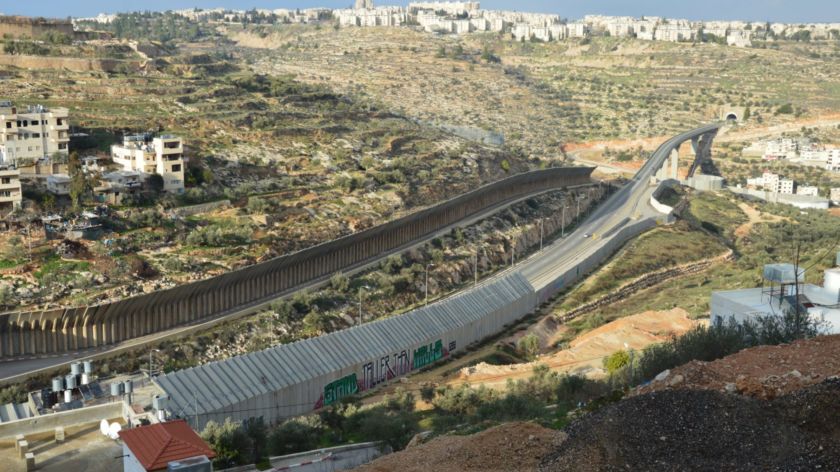Hundreds of Dutch scientists support Palestinians in petition
-
 A highway through Palestinian territory, only for Israelis. Picture: Katelijne Vanderven
A highway through Palestinian territory, only for Israelis. Picture: Katelijne Vanderven
The Dutch government must take a more active role to guarantee the human rights of Palestinian citizens in the sparked conflict between Israel and Hamas. That is the message of a petition that is circulating among scientists in the Netherlands.
With their support, the scientists declare their solidarity with the Palestinians – both in the Palestinian territories and Israel, and beyond, such as refugees. At the time of writing, the petition has already been signed more than 350 times, also by dozens of full professors. More than ten Nijmegen scientists have also signed.
The petition criticizes, among other things, a tweet of Dutch Prime Minister Mark Rutte. In his tweet, Rutte mentions Israel’s right to self-defense, but, according to a press release accompanying the petition, not the rights of Palestinians. ‘The perception that this is a conflict between two equal sides is a dangerous obfuscation.’
The Palestinians, the petition states, are the underlying party, living as second-class citizens under military occupation. Until there is a ‘just peace’, the Dutch government should cut ‘all economic, political and military relations with Israel’.
‘I saw with my own eyes how shocking the occupation is’
One of the Nijmegen signatories is Angela Isoldi, PhD candidate at the Radboud Institute for Culture & History. ‘I want to support the call to respect human rights in Gaza,’ she says in a reaction on the phone. ‘I have volunteered with children in the Palestinian Territories in the past. There I saw with my own eyes how shocking the reality of the occupation is for them.’
As an academic, she finds it important to take a stand. ‘Israel is now using its advanced and massive army for deadly violence against civilians. The government itself says it only fights terrorists, but it provides no evidence for this.’
Boycott
To support their call, the signatories announce that they will boycott Israeli academic institutions from now on. Some of those are said to have links with the Israeli army. The petition writers rely on information from Boycott, Divestment and Sanctions (BDS), an activist movement that calls for resistance against Israel.
Apart from that, Isoldi adds, no Israeli institution has yet spoken out against the violence its government is using. ‘It is often said that there are two sides to the story, because two parties are fighting. But that’s an excuse. Every historian knows that this conflict is not equivalent.’
The PhD student wants to emphasize that the boycott is aimed at institutions, not individuals. Collaborations with individual researchers can still continue. Yet, the boycott may also affect her own research. ‘I’m studying the Middle East. Many relevant sources for this are in libraries in Jerusalem.’ Still, this did not stop her from supporting the action, she says. ‘This is more important than my own research.’



